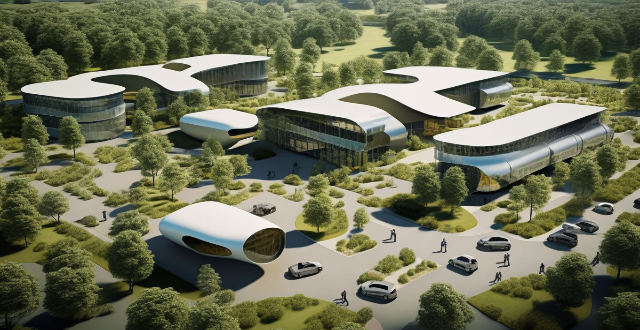The future of automotive culture is being reshaped by environmental concerns, regulatory changes, technological advancements, and shifts in consumer preferences. Governments are implementing stricter emission standards, leading to the development of cleaner technologies such as electric vehicles, hybrid systems, and fuel cell technology. Consumers are increasingly demanding eco-friendly options and preferring brands that demonstrate sustainability efforts. The traditional car enthusiast culture is adapting to these changes, with the rise of electric racing leagues and green Grand Prix events. Overall, the future of automotive culture will be characterized by a focus on efficiency, sustainability, and innovation.

How do Environmental Concerns Affect the Future of Automotive Culture?
*Introduction*
The automotive culture, traditionally characterized by a love for powerful engines and speed, is at a crossroads. As environmental concerns rise to the forefront of global issues, the future of this culture is being reshaped in significant ways. This transformation is driven by both regulatory changes and a shift in consumer preferences towards more sustainable options.
*Regulatory Changes*
Governments worldwide are implementing stricter emission standards to combat climate change. This has led to:
- EURO 6 Standards: Stricter emission norms for cars in Europe, pushing manufacturers to develop cleaner technologies.
- California's ZEV Mandate: Requiring a certain percentage of sales from automakers to be zero-emission vehicles.
- National Decarbonization Goals: Many countries aiming for net-zero carbon emissions by 2050, affecting all industries including automotive.
*Technological Advancements*
To meet these standards, technology is evolving rapidly:
- Electric Vehicles (EVs): Battery technology improvements have made EVs more practical and affordable.
- Hybrid Systems: Combining conventional engines with electric motors for reduced emissions.
- Fuel Cell Technology: Using hydrogen as a clean energy source for vehicles.
- Connected Cars: Internet-connected vehicles that optimize routes and reduce fuel consumption.
*Consumer Preferences*
Public awareness about environmental issues has changed buying habits:
- Increased Demand for EVs: More consumers are choosing electric vehicles due to their low environmental impact.
- Concern for Sustainability: Buyers prefer brands that demonstrate corporate social responsibility and sustainability efforts.
- Mobility as a Service (MaaS): Trend towards shared and public transport, reducing the need for personal vehicles.
*Cultural Shift*
The traditional car enthusiast culture is adapting:
- Electric Racing Leagues: Racing events featuring electric vehicles are gaining popularity.
- Green Grand Prix: Formula 1 is introducing more sustainable practices and developing a new class of biofuel-powered cars.
- Online Forums and Groups: Enthusiasts discuss the latest in eco-friendly car tech and share experiences.
*Conclusion*
The future of automotive culture will undoubtedly be greener, with a focus on efficiency, sustainability, and innovation. While the roar of the engine might become less prevalent, the thrill of driving—and the spirit of innovation—is set to continue in new, exhilarating forms.